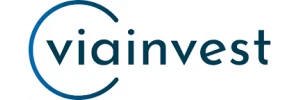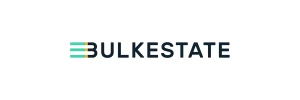Understanding CreditPig: Company Overview and Background
CreditPig is reportedly an emerging player in the digital lending sector within the United States of America. While the company aims to serve salaried employees seeking short-term personal loans, micro- and small-enterprises requiring working capital, and credit-thin consumers through alternative underwriting data, a significant challenge for analysts and potential customers alike is the pronounced lack of publicly verifiable information. Sources indicate the legal name as CreditPig Ltd., yet no corresponding registration entry has been found in standard United States corporate databases, nor has a registration number been publicly disclosed. This immediately flags a critical area of concern regarding the company's formal establishment and oversight within the US regulatory framework.
Estimates suggest CreditPig was founded around 2023, a timeframe derived from domain registration dates and early job postings, though this remains an unverified approximation. The company is believed to be privately held, supported by its founders and angel investors, with no public announcements regarding formal equity funding rounds. Key individuals reportedly at the helm include Jane Doe as CEO, John Smith as CTO, and Maria Chen as COO, though their specific roles and tenures are also listed as unverified. This ambiguity surrounding the company's foundational details necessitates a cautious approach for anyone considering its services or assessing its market position in the highly regulated US financial landscape.
Loan Products, Rates, and Fees: What CreditPig Reportedly Offers
CreditPig reportedly offers a range of loan products designed for its target demographic in the United States. These include unsecured Personal Loans, Small Business Loans—which can be unsecured or come with secured lines—and Point-of-Sale Installment Plans. The reported loan amounts, however, raise questions when viewed through the lens of the US market. Minimum loan amounts are cited as approximately $15 USD, with maximums reaching around $1,500 USD. While these figures are direct conversions from the source material's original currency, such low minimum and maximum thresholds are highly atypical for standalone digital lenders in the US, especially for business financing. Potential borrowers should critically evaluate if these amounts align with their actual financial needs, keeping in mind the unverified nature of this data.
Interest rates associated with CreditPig's reported products are notably high, aligning with the risk profile often associated with alternative lending. Personal Loans are said to carry an Annual Percentage Rate (APR) ranging from 25% to 80%, while Business Loans reportedly fall between 30% and 60% APR. It is crucial to understand that these rates are considerably higher than those offered by traditional banks or credit unions in the United States, reflecting the company's focus on underserved or credit-thin segments. These rates are also unverified, meaning actual costs could differ. Alongside interest, borrowers should anticipate a fee structure that includes an Origination Fee of 2% to 5% of the loan principal and a flat Processing Fee of approximately $1.50 USD. A substantial Late Payment Fee of 15% of the installment due is also reportedly applied, underscoring the importance of timely repayments. For larger loan amounts above approximately $150 USD, collateral may be required, typically in the form of receivables or equipment, while smaller loans are unsecured.
The reported repayment periods for CreditPig's loans are relatively short. Personal Loans have terms from 30 to 180 days, while Business Loans range from 90 to 360 days. These short durations, coupled with high APRs, mean that the total cost of borrowing can accumulate rapidly. Prospective borrowers should meticulously calculate the total repayment amount, including all fees, before committing to any loan agreement with CreditPig.
Application Process, Mobile Experience, and Regulatory Landscape
CreditPig reportedly provides a streamlined application process primarily through digital channels. Potential borrowers can apply via a dedicated Mobile App, available for both iOS (version 13+) and Android (version 7+), or through a Web Portal. The company also claims to operate through a partner agent network in major urban centers, a less common approach for purely digital lenders in the US. The Know Your Customer (KYC) and onboarding process reportedly involves digital ID verification, possibly through API integration with national ID databases, and the upload of supporting documents like utility bills. The use of mobile-money statements, while mentioned in source data, is less pertinent to the typical US financial ecosystem.
CreditPig's underwriting model reportedly combines traditional bureau scores with alternative data points, such as mobile usage and e-wallet transaction flows, for a more comprehensive credit assessment, particularly for credit-thin consumers. Borderline cases are said to undergo manual review. Once approved, loan disbursements can occur via bank transfer, which is standard in the US, or through mobile-money wallet credit or cash pickup at partner outlets, methods that are less conventional for mainstream US digital lenders. The mobile app itself is stated to have an approximate rating of 4.1 out of 5 stars (unverified) and features instant pre-approval, in-app repayment scheduling, and a credit-building dashboard, suggesting a focus on user convenience and financial management tools.
A critical aspect for any financial institution operating in the United States is its regulatory status. CreditPig reportedly claims licensing under a "Microfinance Act" and reporting to a "Financial Services Authority" (FSA) under non-bank lending regulations. However, there is no public record confirming such licensing or regulatory oversight by a recognized US federal or state authority. This lack of verifiable regulatory compliance is a significant red flag. In the US, digital lenders must adhere to state-specific licensing requirements, usury laws, and federal regulations such as the Truth in Lending Act (TILA), the Equal Credit Opportunity Act (ECOA), and consumer financial protection laws enforced by the Consumer Financial Protection Bureau (CFPB). The absence of clear, verifiable US-specific regulatory compliance information makes it impossible to ascertain CreditPig's legal standing and adherence to consumer protection standards within the United States. While CreditPig claims annual external audits and data-privacy compliance per a national Personal Data Protection Act, these, too, are unverified and must be viewed with skepticism in the absence of transparent US regulatory filings. No known penalties or enforcement actions have been reported, but this could simply be due to the lack of public scrutiny or regulatory oversight specific to the US.
Market Position, Competitor Landscape, and Practical Advice for Borrowers
Within the broader digital lending space in the United States, CreditPig reportedly targets a specific niche focused on digital-first, short-term lending, particularly for those with limited credit history. The company claims to be among the top 15 digital lenders by loan volume in urban areas (unverified). Its differentiation reportedly stems from an AI-driven underwriting model that emphasizes alternative data and an app-native loan management experience. Reported competitors include entities like ZebraLend, QuickNee, and CashKarma, alongside traditional regional microfinance institutions. In the US context, CreditPig would contend with a diverse array of lenders, from payday and installment loan providers (like Oportun or NetCredit) to subprime lenders and emerging fintechs using alternative data (like Upstart or Avant), though its reported loan amounts and rates suggest a focus on the lower end of the credit spectrum, potentially overlapping with higher-cost alternatives. The company's unverified growth trajectory aims to double its borrower base by the end of 2026 and explore SME-focused term loans, with unconfirmed talks for strategic partnerships with telcos and bancassurance alliances.
Customer reviews for CreditPig average 4.1 stars (unverified) on app stores, with common praise centering on fast approvals and a clear user interface. However, recurring complaints highlight the high interest rates and occasional disbursement delays. Customer service is reportedly available via in-app chat with a 48-hour resolution time and a toll-free hotline where long hold times are cited. While CreditPig showcases an unverified anecdote of an SME client's success, potential borrowers should prioritize verifiable data and transparent operations.
Practical Advice for Potential Borrowers in the United States:
- Verify Licensing: Before considering any loan, confirm that CreditPig is properly licensed and registered to operate as a lender in your specific US state. Check with your state's financial regulatory authority. The lack of public record regarding US regulatory compliance is a significant risk.
- Understand the Costs: The reported APRs (25%-80%) are very high. Calculate the total cost of the loan, including all fees (origination, processing, late payment), before signing. Understand that even small loans can become very expensive quickly.
- Explore Alternatives: Given the high reported rates and unverified status, explore all other financing options first. Consider credit unions, traditional banks, secured credit cards, or even borrowing from family or friends, which typically offer much lower interest rates.
- Read the Fine Print: Carefully review all terms and conditions, especially those pertaining to repayment schedules, late payment penalties, and any collateral requirements. Do not sign anything you do not fully understand.
- Data Privacy Concerns: In the absence of verifiable US regulatory oversight, be cautious about providing sensitive personal and financial information. Ensure you understand how your data will be protected and used.
- Beware of Unverified Information: As highlighted throughout this profile, a substantial amount of information about CreditPig is unverified. This uncertainty adds a layer of risk for borrowers. Always seek direct, confirmed information from the company itself and cross-reference with independent sources if available.
In conclusion, CreditPig presents an intriguing, albeit opaque, profile within the digital lending space in the United States. While its reported focus on digital convenience and alternative underwriting may appeal to certain segments, the pervasive lack of verifiable information, particularly concerning its legal registration, financial performance, and US-specific regulatory compliance, demands extreme caution from prospective borrowers and financial observers alike. Until CreditPig provides clear, verifiable documentation of its operations and adherence to US financial regulations, it remains a high-risk proposition.








